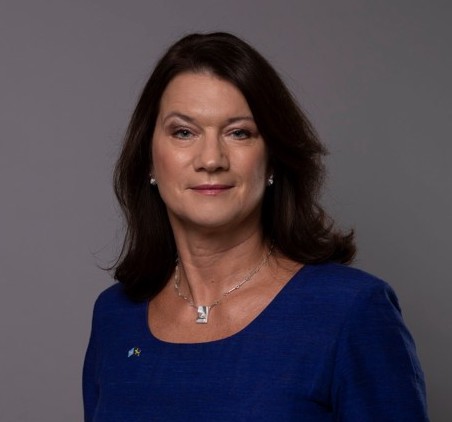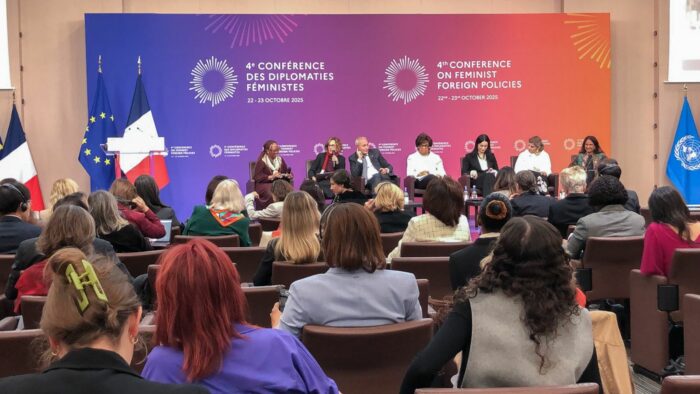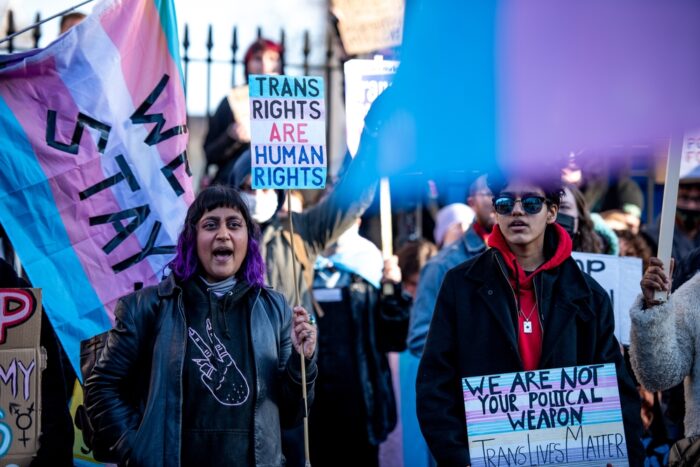Find all related Progressive Post
Progressive Post

In 1995, the Beijing Declaration and Platform for Action set out an ambitious vision for gender equality, identifying twelve critical areas requiring urgent attention. These included women’s education, healthcare, political participation, economic independence and protection from violence. At the time, I was a political advisor to the Swedish Minister of EU Affairs and Trade, and I recall the excitement as we listened to the landmark speeches, particularly Hillary Clinton’s powerful declaration: “human rights are women’s rights, and women’s rights are human rights”. It was a bold call to action, reminding the world that gender equality is a fundamental human rights issue.
Thirty years later, as we reflect on progress at the 69th session of the Commission on the Status of Women (CSW69) in New York, the picture is mixed. There have been undeniable strides forward – yet, troubling regressions threaten these hard-won gains. Today, we must ask: how far have we really come? And what must we do next to safeguard and accelerate gender equality?
Economic empowerment: more women in work, but not on equal terms
One of the most notable changes since 1995 has been women’s increasing economic participation. Female labour force participation has risen globally but large regional differences persist. Women now outnumber men in higher education in many countries, paving the way for better job opportunities. Furthermore, women-owned businesses have grown significantly, now accounting for one in three enterprises worldwide.
However, progress remains uneven and insufficient. Women still face significant barriers in accessing capital, with a staggering $1.7 trillion global gender credit gap. The gender pay gap persists, narrowing from 30 per cent in 1995 to about 20 per cent today – but still stubbornly evident. In executive leadership, despite some gains, female CEOs lead less than 10 per cent of Fortune 500 companies.
Moreover, the burden of unpaid care work remains a critical barrier to gender equality. Women perform approximately 76.2 per cent of global unpaid care work, limiting their ability to engage in full-time employment or leadership roles. Economic crises, such as the Covid-19 pandemic and the rise of automation, have disproportionately affected women, demonstrating the fragility of progress.
Political representation: gains, but a long road ahead
Women’s political representation has more than doubled since 1995, rising from 11 per cent to over 27.2 per cent in national parliaments. Some countries have implemented gender quotas with success – such as the Dominican Republic, which saw an eight-percentage-point rise in women’s parliamentary representation due to stricter enforcement. Yet, progress remains slow. In 2024, only five women were elected heads of state out of 31 presidential elections. Even countries with strong feminist policies, such as France, have seen setbacks, with women’s representation in the Assemblée Nationale declining for consecutive elections. The global democratic backslide has further compounded these challenges, as highlighted by the 2025 V-Dem Report, which warns that autocratisation often correlates with setbacks in gender equality and women’s political participation.
Gender-based violence: a persisting crisis
While legal frameworks to combat gender-based violence have strengthened in many countries, enforcement remains weak. Conflict-related sexual violence has surged by 50 per cent in recent years, particularly in war-affected regions. Meanwhile, conservative and populist movements have intensified attacks on women’s rights, rolling back protections for reproductive rights and LGBTQ+ people. The backlash is real, and it is happening at a time when we need more, not less, commitment to gender justice.
The role of feminist foreign policy in addressing these challenges
Since Sweden pioneered the concept of Feminist Foreign Policy (FFP) in 2014, countries like Canada, France, Germany, Mexico and Spain have followed suit. FFP provides a critical framework to counteract gender inequalities on a global scale. If implemented consistently and with ambition, it can be a tool for:
A call to action
Despite undeniable progress since 1995, the current moment demands vigilance and renewed commitment. Gender equality is not a linear path – it requires continuous political will, policy innovation and global solidarity. As we commemorate 30 years since the Beijing Declaration, we must resist the forces seeking to turn back the clock. The 69th session of the Commission on the Status of Women serves as both a reflection on past achievements and a rallying cry for the future. We owe it to the next generation to ensure that women’s rights remain at the forefront of global policy – because, as history has shown, progress is never guaranteed.
The question is not whether we can achieve gender equality, but whether we will have the courage to fight for it. The time for action is now.
Photo credits: FEPS/Julia Wild
| Cookie | Duration | Description |
|---|---|---|
| cookielawinfo-checkbox-advertisement | 1 year | Set by the GDPR Cookie Consent plugin, this cookie is used to record the user consent for the cookies in the "Advertisement" category . |
| cookielawinfo-checkbox-analytics | 11 months | This cookie is set by GDPR Cookie Consent plugin. The cookie is used to store the user consent for the cookies in the category "Analytics". |
| cookielawinfo-checkbox-functional | 11 months | The cookie is set by GDPR cookie consent to record the user consent for the cookies in the category "Functional". |
| cookielawinfo-checkbox-necessary | 11 months | This cookie is set by GDPR Cookie Consent plugin. The cookies is used to store the user consent for the cookies in the category "Necessary". |
| cookielawinfo-checkbox-others | 11 months | This cookie is set by GDPR Cookie Consent plugin. The cookie is used to store the user consent for the cookies in the category "Other. |
| cookielawinfo-checkbox-performance | 11 months | This cookie is set by GDPR Cookie Consent plugin. The cookie is used to store the user consent for the cookies in the category "Performance". |
| csrftoken | past | This cookie is associated with Django web development platform for python. Used to help protect the website against Cross-Site Request Forgery attacks |
| JSESSIONID | session | The JSESSIONID cookie is used by New Relic to store a session identifier so that New Relic can monitor session counts for an application. |
| viewed_cookie_policy | 11 months | The cookie is set by the GDPR Cookie Consent plugin and is used to store whether or not user has consented to the use of cookies. It does not store any personal data. |
| Cookie | Duration | Description |
|---|---|---|
| __cf_bm | 30 minutes | This cookie, set by Cloudflare, is used to support Cloudflare Bot Management. |
| S | 1 hour | Used by Yahoo to provide ads, content or analytics. |
| sp_landing | 1 day | The sp_landing is set by Spotify to implement audio content from Spotify on the website and also registers information on user interaction related to the audio content. |
| sp_t | 1 year | The sp_t cookie is set by Spotify to implement audio content from Spotify on the website and also registers information on user interaction related to the audio content. |
| Cookie | Duration | Description |
|---|---|---|
| CONSENT | 2 years | YouTube sets this cookie via embedded youtube-videos and registers anonymous statistical data. |
| iutk | session | This cookie is used by Issuu analytic system to gather information regarding visitor activity on Issuu products. |
| s_vi | 2 years | An Adobe Analytics cookie that uses a unique visitor ID time/date stamp to identify a unique vistor to the website. |
| Cookie | Duration | Description |
|---|---|---|
| NID | 6 months | NID cookie, set by Google, is used for advertising purposes; to limit the number of times the user sees an ad, to mute unwanted ads, and to measure the effectiveness of ads. |
| VISITOR_INFO1_LIVE | 5 months 27 days | A cookie set by YouTube to measure bandwidth that determines whether the user gets the new or old player interface. |
| YSC | session | YSC cookie is set by Youtube and is used to track the views of embedded videos on Youtube pages. |
| yt-remote-connected-devices | never | YouTube sets this cookie to store the video preferences of the user using embedded YouTube video. |
| yt-remote-device-id | never | YouTube sets this cookie to store the video preferences of the user using embedded YouTube video. |
| yt.innertube::nextId | never | This cookie, set by YouTube, registers a unique ID to store data on what videos from YouTube the user has seen. |
| yt.innertube::requests | never | This cookie, set by YouTube, registers a unique ID to store data on what videos from YouTube the user has seen. |
| Cookie | Duration | Description |
|---|---|---|
| COMPASS | 1 hour | No description |
| ed3e2e5e5460c5b72cba896c22a5ff98 | session | No description available. |
| loglevel | never | No description available. |


